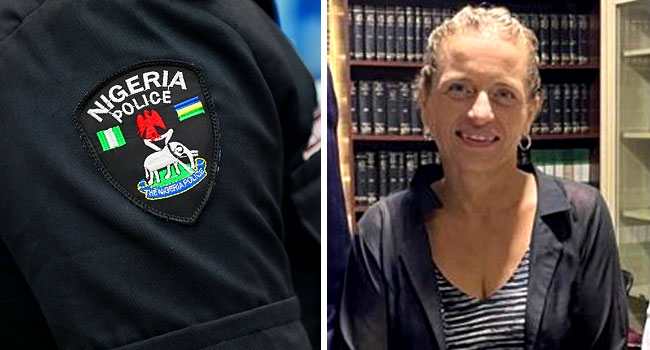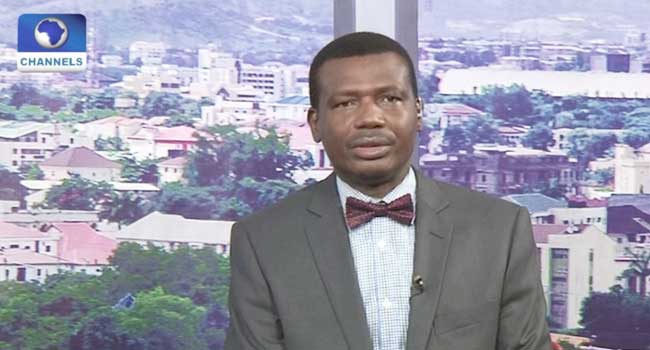
Brendan Smialowski / AFP
President Donald Trump on Friday said Chinese and American officials were working toward meaningful progress in trade talks, boosting hopes for a detente in the two sides’ damaging trade war.
Trump’s tweet fed a stock rally, with Wall Street erasing the week’s losses as investors bet a partial pact would see the United States postpone next week’s scheduled tariff increases on hundreds of billions of dollars in Chinese imports.
“Good things are happening at China Trade Talk Meeting. Warmer feelings than in recent past, more like the Old Days,” Trump said on Twitter shortly after officials resumed negotiations for a second day.
“All would like to see something significant happen!”
Trump is due later Friday to meet with Beijing’s top trade envoy Liu He in a sign the two sides expect to make a positive announcement.
With the White House engulfed in turmoil, Trump could do with even a partial win.
He faces an intensifying impeachment probe by Democrats, which polls show is gaining in public acceptance and stinging bipartisan criticism for allowing a Turkish assault on Washington’s Kurdish partners to go forward by pulling American special forces away from the border in northeast Syria.
Since the trade war began last year, however, moments of comity and cheer have more than once been shattered, giving way to jolting deteriorations in relations between the two sides.
In the spring, officials said a deal was more or less at hand, only to have Washington resume tariff increases in May after accusing Beijing of reneging on core commitments already put down in writing.
Overnight, meanwhile, China’s securities regulators set a timetable for removing foreign ownership limits in finance companies in 2020 — helping attract foreign investment as China’s economy slows but also removing constraints on foreign capital.
In Beijing, Foreign Ministry Spokesman Geng Shuang told also reporters that China hoped “to promote positive progress” in the talks.
Media reports this week have drawn the contours of a partial deal that, while not addressing Trump’s core grievances about China’s trade practices, would offer something for both sides.
China will continue to increase purchases of US farm exports and pledge to refrain from currency manipulation while Washington will suspend a tariff increase, Bloomberg reported.
Myron Brilliant, head of international affairs at the US Chamber of Commerce, told reporters on Thursday he had spoken with both sides and that an agreement on currency could emerge this week.
Not Just Tariffs
“I think that could lead to a decision by the US administration not to put forward a tariff rate hike on October 15,” he said.
The US Treasury in August branded China a currency manipulator, accusing Beijing of deliberately weakening the RMB to gain unfair trade advantages, making good on a Trump campaign pledge.
Where matters go from there remains to be seen, however.
China has so far balked at Trump’s demands for profound changes in the way Beijing manages its economy, something analysts say could politically undermine the Communist Party.
In an editorial on Friday, the party-owned China Daily said a partial deal “is a more feasible objective and one that would be in the common interests of both sides.”
Meanwhile, the Trump administration has continued to examine ways in which it could exert more pressure on Beijing beyond simply taxing Chinese imports.
Washington accuses China of attempting to dominate global industry through massive state intervention in markets, theft of intellectual property, hacking and subsidies, accusations shared by Europe and Japan.
Larry Kudlow, a top White House economic aide, said this week this could include heightened regulatory scrutiny of Chinese companies operating in the United States.
Elsewhere, Trump has is already raising the temperature for Beijing through non-tariff means.
Just since Monday, Washington has imposed visa restrictions on senior Chinese officials and blacklisted more than two dozen Chinese firms, accusing them of persecuting ethnic Uighur Muslims in China’s western Xinjiang region.




